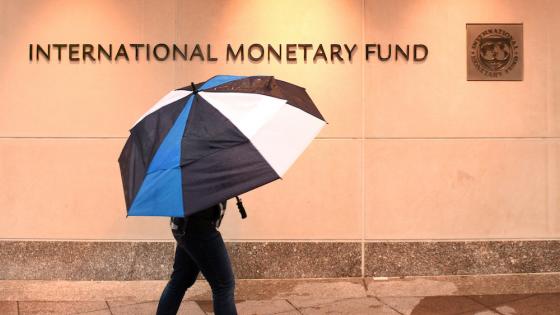A “New Bretton Woods” is the name given to a summit this weekend of leaders of the world’s top economies to map out a response to the global financial crisis. The meeting received this label because it aims to reconsider the structure and the role of international economic institutions such as the G7, the International Monetary Fund (IMF), and the Financial Stability Forum (FSF).
Priorities: Institutions not rules
The goal of this meeting should be to redesign the international financial architecture. Namely:
- To rethink the tasks assigned to the international bodies involved in the regulation of financial institutions, in the monitoring of the international financial system and in the management of crises;
- To spell out the information flows and the lines of command that should regulate the relationship among the various institutions (IMF, FSF, Bank for International Settlements, etc.)
The goal should not be writing new rules for these markets.
Focus on IMF, G7, FSF and ECB
What should the summit aim to achieve? It should focus on redesigning institutions, namely the IMF, conceived in 1944 when western leaders met in Bretton Woods and set out a new financial order, the G7, the FSF and even the European Central Bank.
G7. This institution still bears the imprint of the Second World War. Why are large countries such as China, India, Mexico and Brazil not members of the G7, while others such as Italy are? Shouldn’t the Eurozone countries have only one, heavyweight representative in international economic summits? If the G7 wants to be something more than a photo opportunity for European and North American politicians, it needs a major restructuring. Otherwise it will become even more irrelevant than it already is. The G7 should be transformed into a “New G8” whose membership should include a limited number of systemically important countries/regions, such as: US, Japan, UK, Euro area, China, Brazil, Russia and some representation from the Middle East.
IMF. The IMF’s role, as the watchdog against irresponsible macroeconomic policies and against the possibility that capital flows are mishandled, should be enhanced. Capital movements and global imbalances are not necessarily “bad” as we discuss below, but they could be if they are the result, for instance, of irresponsible fiscal policies. In the past, Fund surveillance has often been too coded and thus ineffective. How to increase the “bite” of this watchdog should be high on the agenda of Bretton Woods II. One issue that should be addressed is whether the provision of liquidity and the lender-of-last-resort function should be delegated to the IMF — with the ensuing moral hazard risks that have emerged in the past — or left to national or regional institutions.
FSF. As the effects of the crisis reverberate in central Europe and Latin America, the membership of the FSF appears to be out of step with its mandate, which is to “assess vulnerabilities affecting the international financial system, identify and oversee action needed to address them, and improve co-ordination and information exchange among the various authorities responsible for financial stability”. The current FSF membership can hardly deal with central Europe and Latin America since it is limited to the G7 plus Australia, Switzerland, Singapore, and Hong Kong. As in the case of the G7, we need to seriously rethink the FSF’s membership. The FSF should have the mandate to redesign rules to make another meltdown less likely
The Fed and the ECB. The recent crisis has shown without any doubt that financial supervision in the Euro area should be moved from national governments to a European level. This does not necessarily mean the ECB; it could be another, possibly new agency. But given that we have a strong, well functioning, and independent ECB, it is the obvious candidate to assume this role. A similar problem arises with the US Federal Reserve. One clear message from the crisis is the illusion of the benefits from competition among regulators, an argument that has often been used to justify the dispersed attribution of regulatory responsibilities in the US.
A final word of caution. The current crises and calls for more or better regulation should not generate the impression the there exist “perfect” regulations that would eliminate instability and crises. If we want vibrant markets willing to take risks and finance innovation and new ideas, we need to accept the fact that sometimes things go wrong. With shackled financial markets, we may never have crises, but we will never find anyone to finance innovators.
International financial coordination
Two institutions should regularly report to the “New G8”:
- the IMF, responsible for monitoring macroeconomic risks;
- the FSF, responsible for designing new rules to improve financial regulation and for monitoring regional financial regulators.
Avoid restrictions on specific market activities
Another mistake would be to outlaw certain market activities, such as short selling, or certain institutions, such as hedge funds. Pundits who push such proposals demonstrate a serious lack of understanding of how markets work. Short-selling is a way of bringing valuable information about the future to today’s market price. For example, short-selling can be ‘stabilising speculation’ and thus help prevent bubbles from getting started. Frequently, hedge funds are the investors who bring valuable information to the market, for instance by arbitraging between the shares of two companies belonging to the same industry.
The finance industry has made serious mistakes in the past few years, often because of its intermingling with politicians. But the financial sector has also been an engine of growth. Allowing politicians to redesign rules with a punitive spirit would be a cure worse than the disease.


